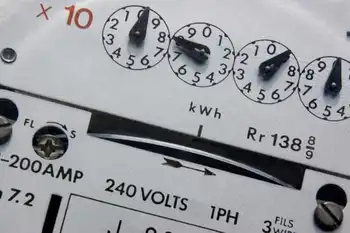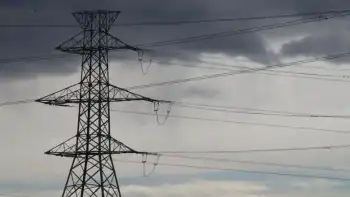Residential power options begin to emerge
PENNSYLVANIA - Fewer than five months before electricity deregulation takes hold within PECO territory, two licensed alternative companies have emerged.
They are The Pennsylvania Energy Cooperative and Commerce Energy.
The Pennsylvania Energy Cooperative — a Philadelphia-based, nonprofit — offers partial and 100 percent renewable electricity, according to Blaine Martin, the company’s electricity program manager.
Commerce Energy — a wholly-owned subsidiary of Just Energy Income Fund, based in Ontario, Canada — serves 600,000 electricity and natural gas customers throughout North America.
They include Pennsylvania, Maryland, Ohio, Michigan, New Jersey and California, according to Gord Potter, executive vice president of regulatory and legal affairs for Just Energy.
Martin and Potter said the eventual emergence of additional electricity alternatives will help drive down the cost of electricity.
Both said their companies plan on offering competitive prices to residential customers.
“I would be surprised not to see a bunch more of retail options,” Potter said. “I think choice is super important for consumers. The more competition, the better the prices.”
Neither has offered a price below PecoÂ’s current standard, according to Jennifer Kocher, a spokeswoman for the Pennsylvania Public Utility Commission.
She said that could change in October, following PecoÂ’s final price auction.
“At that point, the residential market should start to develop,” Kocher said.
On Jan. 1, the expiration of rate generation caps — as determined by the Electric Choice Act of 1997 — will create a projected 10 percent increase for all Peco clients and add approximately $8 to the monthly bill for the average residential customer, according to Karen Muldoon Geus, the company’s director of communications.
But the reduced prices created by competition could provide savings for electricity consumers, according to Kocher.
She said a similar situation in the PPL territory generates between $5 and $10 in monthly savings for non-heating customers.
High-end residential users have saved between $25 and $30, according to Kocher.
“One woman showed a savings of $90 a month,” she said.
In the PPL territory, 12 alternative companies presented offers for residential clients, according to Kocher.
She said commercial operations have 60 options from which to choose.
The Pennsylvania Energy Cooperative — which currently has 1,000 customers — will focus on residential and small commercial or nonprofit clients, according to Martin.
He said they best fit the cooperativeÂ’s mission.
The organization powers its turbines with 87 percent hydropower, 10 percent wind and 3 percent solar, according to Martin.
He said a more active program management has helped drive down the cost of electricity.
“In general the cost of electricity is going down,” Martin said. “As more resources come on line, I would expect price of renewable energy to come down, as well.”
Though its parent company is traded on the Toronto Stock Exchange, Commerce Energy customers will pay a price for electricity based on the costs incurred and the efficiency by which it can supply the product, according to Potter.
Martin said his company continues to assess whether or not yearly contracts with customers are feasible.
“Our intention is to have as long a stability period as possible,” he said. “The longer you lock customers in at one rate, the more expensive the price.”
Just EnergyÂ’s subsidiaries currently offer variable and fixed rates that extend between one and five years, according to Potter.
“I’m not sure what we will offer in January,” he said. “You’ll probably see some variable month-to-month rates. The more offers we make, the more consumers we can attract.”
Related News

Hydro One delivery rates go up
THUNDER BAY - Hydro One seasonal customers will face bigger increases in their bills than the utility's residential customers as a result of an Ontario Energy Board approval of a rate hike.
Hydro One received permission to increase its delivery charge, retroactive to last year.
It says it needs the money to maintain and upgrade its infrastructure, much of which was installed in the 1950s.
The utility is notifying customers that new statements reflect higher delivery rates which were not charged in 2018 and the first half of this year, due to delay in receiving the OEB's permission.
The amount that customers' bills will increase by depends…




